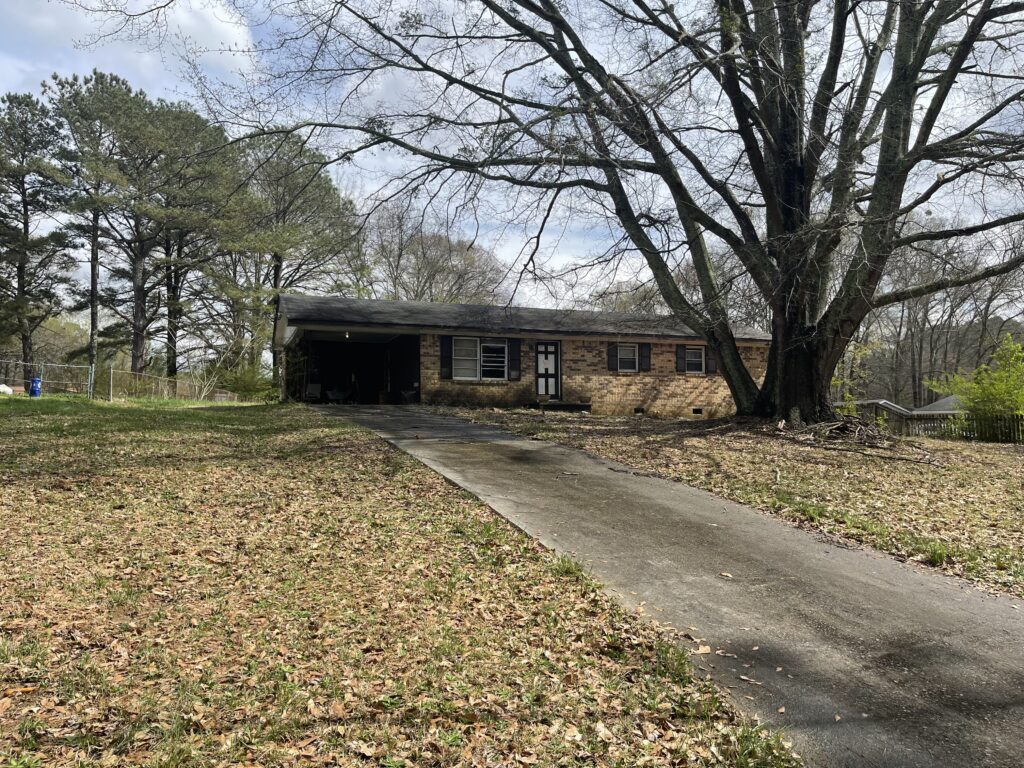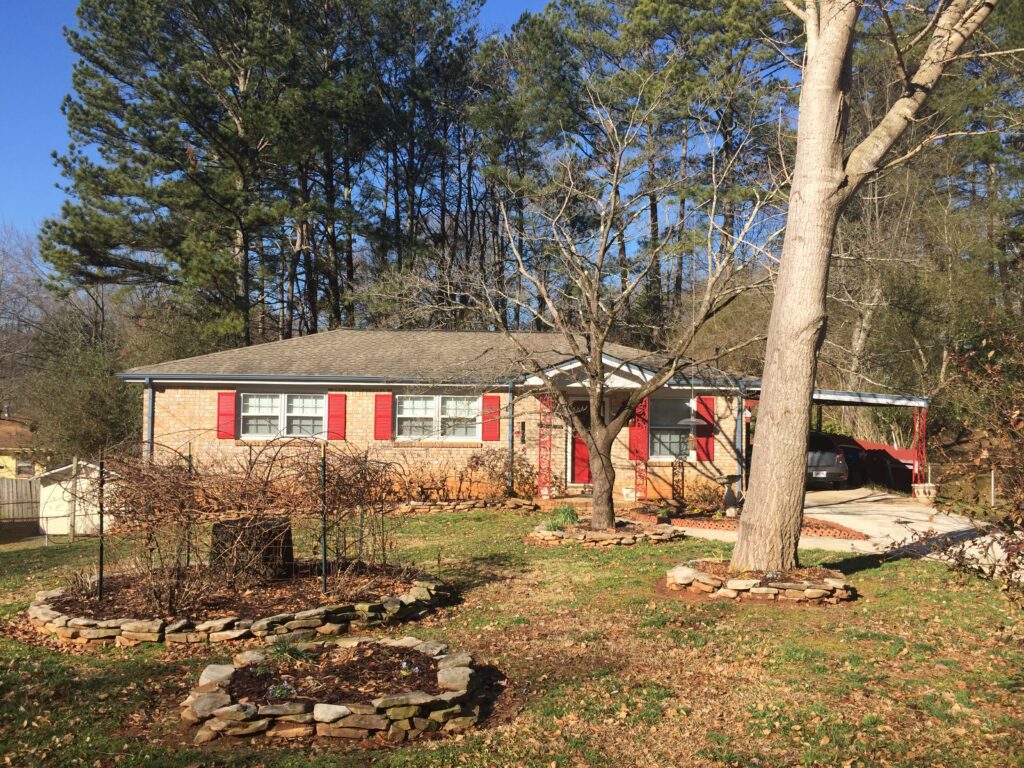
Understanding the foreclosure process in Georgia is an important part of navigating your own home foreclosure.
Let’s dive into the process…
Understanding the Types Of Foreclosures in Georgia
What is foreclosure anyway?
Foreclosure is the legal process that lenders use to take back property securing a loan, generally after the borrower stops making payments.
Foreclosure is no fun. But just know that it’s not the end of the world.
When you know how foreclosure in Georgia works… it arms you with the knowledge to make sure you navigate it well and come out the other end as well as possible.
The Basic Process of A Foreclosure
There are a few stages that are important to any foreclosure process.
Foreclosure works differently in different states around the country.
The two ways different states use to foreclose upon a property are: judicial sale or power of sale.
Connect with us by calling 404-620-0311 or through our contact page to have us walk you through the specific foreclosure process here locally in Acworth.
In either scenario, foreclosure typically doesn’t go to court until 3-6 months of missed payments have elapsed. Usually (but not always), a lender will send out a notice of default that you are in arrears – overdue or behind in your payment.
Under Judicial Foreclosure:
- Your mortgage lender must file suit in the court system.
- You’ll get a letter from the court demanding payment.
- Assuming the loan is valid, you’ll have 30 days to bring payment to court to avoid foreclosure (and sometimes that can be extended).
- If you don’t pay during the grace period, a judgment will be entered and the lender can request the sale of your property – usually through an auction.
- Once the property is sold, the sheriff serves an eviction notice and forces you to immediately vacate the property.
Under Power of Sale (or Non-Judicial Foreclosure):
- The mortgage lender serves you with papers demanding payment, and the courts are not required – although the process may be subject to judicial review.
- After the established waiting period has elapsed, a deed of trust is drawn up and control of your property is transferred to a trustee.
- The trustee can then sell your property to the lender at a public auction (notice of sale).
Anyone who has an interest in the property must be notified during either type of foreclosure.
For example, any contractors or banks with liens against a foreclosed property are entitled to collect from the proceedings of an auction.
After The Foreclosure Sale Day Auction, What Happens?
After a foreclosure is complete, the loan amount is paid off with the sale proceeds.
Sometimes, if the sale of the property at auction isn’t enough to pay off the loan, a deficiency judgment can be issued against the borrower.
A deficiency judgment is a legal term that refers to a court order against a borrower who fails to repay a loan after their property has been foreclosed. In such cases, the bank or lender may take legal action against the borrower to recover the remaining balance of the loan amount that was not paid through the foreclosure sale. This means that even after the borrower loses their property, they may still be held responsible for the outstanding amount, which is referred to as a deficiency balance. A deficiency judgment can result in serious consequences for the borrower, such as wage garnishment, seizure of assets, or damage to their credit score. Therefore, it is essential for borrowers to understand the implications of a deficiency judgment and seek professional advice to avoid such situations.
When a borrower defaults on a secured loan, such as a mortgage, the lender may seek a deficiency judgment to recover the outstanding loan balance. This court order permits the lender to collect the remaining loan amount after the property has been sold at a foreclosure auction or similar sale. However, the regulations governing deficiency judgments differ from state to state, with some states capping the amount that can be assessed to the property’s fair value at the time of sale, while others allow the lender to pursue the entire loan amount. Consequently, borrowers in some states may face a higher risk of being held accountable for a substantial deficiency judgment if they default on their loan. It is critical for borrowers to comprehend their state’s laws and seek legal advice if faced with a deficiency judgment.
Here’s a great resource that lists the state by state deficiency judgment laws, since every state is different.
Can You Sell A Foreclosed House?
It is possible to sell a foreclosed house, as long as the foreclosure process has not reached the point of foreclosure sale. By selling the house yourself, you are able to pay off what is owed on the mortgage in full and must inform your lender of your decision straight away so that they can grant you sufficient time. This is usually welcomed by lenders, as it prevents them from having to carry out an auctioning process.

Due to markets fluctuating all of the time – especially during a buyer’s market – finding a buyer quickly can be difficult. Even so, it is essential that you do so before reaching a foreclosure sale or you may end up losing much more money in costs associated with such proceedings. Advertising openly on sites or engaging in social media marketing techniques such as sharing property listings via Twitter and Facebook may help speed up the process.
For homeowners, the foreclosure process can be an overwhelming and financially devastating experience. This typically involves a mandatory public auction of the property, often resulting in a sale price much lower than its actual value. It is therefore generally advised to steer clear of foreclosure auctions when possible. Instead, homeowners have a few alternatives, such as negotiating with their bank or seeking the assistance of a reliable real estate company to help broker discounts off the amount owed. By doing so, homeowners may save their credit scores and avoid the long-lasting repercussions of foreclosure. Companies like Tyler and Alyson Buy Houses have the necessary expertise and experience to assist homeowners with these negotiations, simplifying the process and minimizing stress for everyone involved.
Experienced investors can help you by negotiating directly with banks to lower the amount you owe in a sale – or even eliminate it, even if your home is worth less than you owe.
If you need to sell a property near Acworth, we can help you.
We buy houses in Acworth Georgia like yours from people who need to sell fast.
Give us a call anytime 404-620-0311 or fill out the form on this website today! >>
Another Foreclosure Resource For Acworth Georgia HomeOwners: